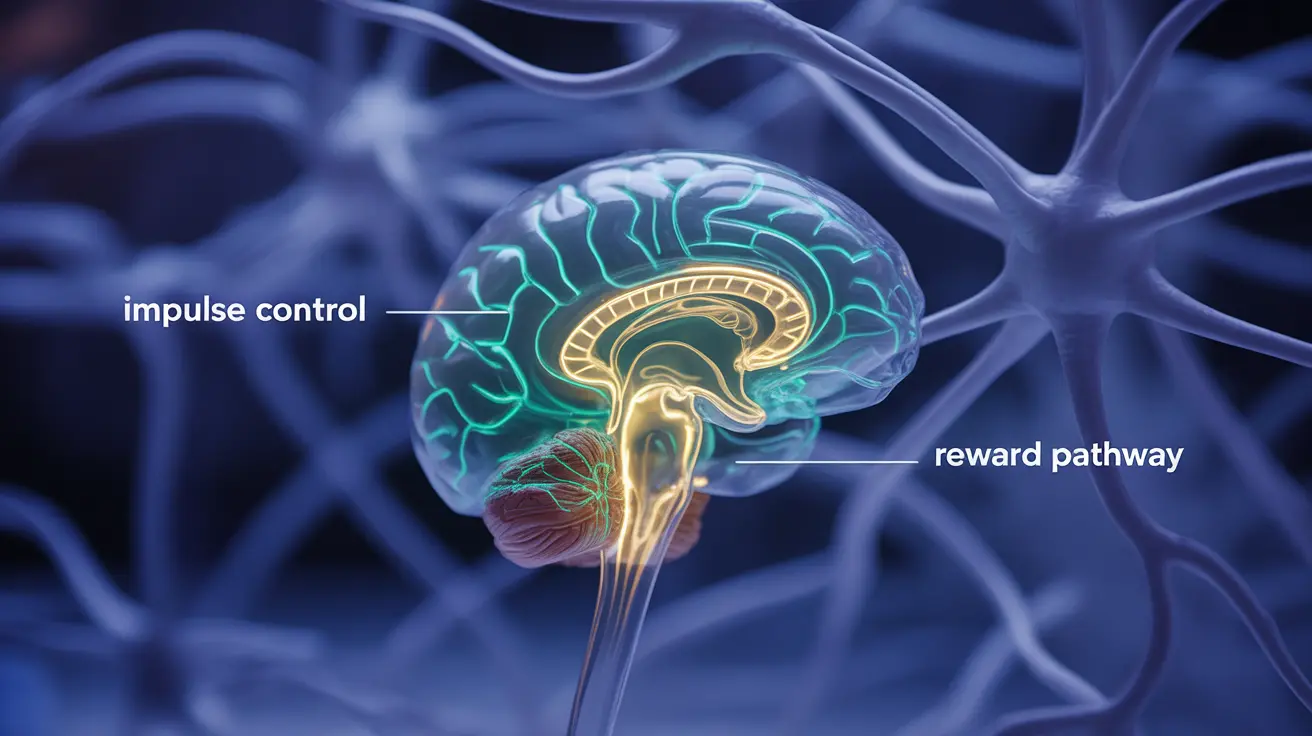Attention-deficit/hyperactivity disorder (ADHD) and overeating often share a complex relationship that affects many individuals' daily lives. This connection stems from the unique way ADHD impacts brain function, particularly in areas controlling impulse regulation and reward processing. Understanding this relationship is crucial for developing effective management strategies and improving overall well-being.
For those with ADHD, eating patterns can become irregular or problematic due to various factors, including executive function challenges, emotional regulation difficulties, and altered dopamine signaling. Let's explore the intricate relationship between ADHD and overeating, along with practical solutions for managing these challenges.
The Neural Connection: ADHD and Eating Behaviors
The ADHD brain processes rewards and satisfaction differently from neurotypical brains. This difference affects how individuals with ADHD respond to food and eating cues. The dopamine system, which plays a crucial role in both ADHD and eating behaviors, can lead to seeking immediate gratification through food, particularly high-calorie or highly stimulating foods.
- Reduced impulse control
- Difficulty recognizing internal hunger and fullness cues
- Seeking dopamine stimulation through eating
- Challenges with meal planning and structure
Executive Function Challenges and Eating Patterns
Executive function difficulties, a hallmark of ADHD, can significantly impact eating behaviors. These challenges manifest in several ways:
- Difficulty maintaining regular meal schedules
- Problems with meal planning and preparation
- Tendency to choose convenient but less healthy food options
- Challenges with portion control
- Difficulty stopping eating once started
Emotional Eating and ADHD
Many individuals with ADHD experience intense emotions and may turn to food as a coping mechanism. This emotional eating can be triggered by:
- Stress and overwhelm
- Boredom or understimulation
- Anxiety or depression
- Difficulty processing emotions
Effective Management Strategies
Managing overeating with ADHD requires a comprehensive approach that addresses both conditions. Key strategies include:
Structure and Planning
- Establish regular meal times
- Create simple meal plans
- Keep healthy, pre-portioned snacks readily available
- Use timers or reminders for meals and snacks
Environmental Modifications
- Organize the kitchen to minimize impulse eating
- Store trigger foods out of sight or avoid purchasing them
- Create designated eating spaces
- Minimize distractions during meals
Professional Support
- Work with healthcare providers to optimize ADHD treatment
- Consider behavioral therapy or counseling
- Consult with a registered dietitian familiar with ADHD
- Join support groups for shared experiences and strategies
Frequently Asked Questions
What causes people with ADHD to overeat or binge eat more often?
People with ADHD may overeat due to impaired impulse control, altered reward processing, and difficulties with executive function. The brain's dopamine system plays a significant role, often leading to seeking immediate satisfaction through food.How does ADHD affect the brain's reward system related to eating?
ADHD affects the dopamine system, which influences reward and satisfaction. This can lead to seeking more immediate and intense rewards through food, particularly high-stimulation or high-calorie options.What practical strategies can help manage overeating for someone with ADHD?
Effective strategies include establishing regular meal times, creating structured meal plans, using portion control tools, minimizing distractions while eating, and maintaining a organized food environment.Can ADHD medications impact appetite and overeating patterns?
Yes, ADHD medications, particularly stimulants, can affect appetite. While they often reduce appetite during their active period, some people may experience increased hunger when the medication wears off.How is binge eating disorder linked to ADHD, and what treatments are effective?
ADHD and binge eating disorder often co-occur due to shared neural pathways and challenges with impulse control. Effective treatment typically involves a combination of ADHD management, behavioral therapy, nutritional counseling, and sometimes medication.




